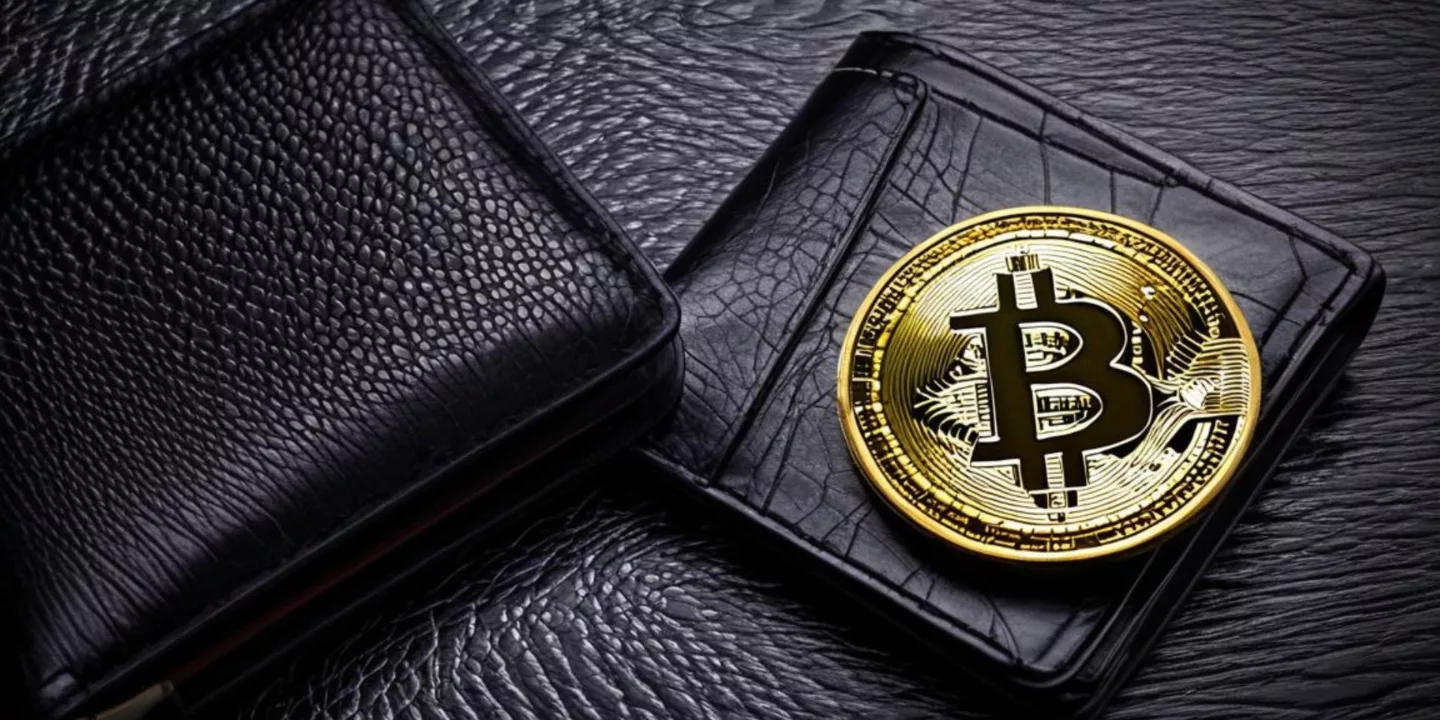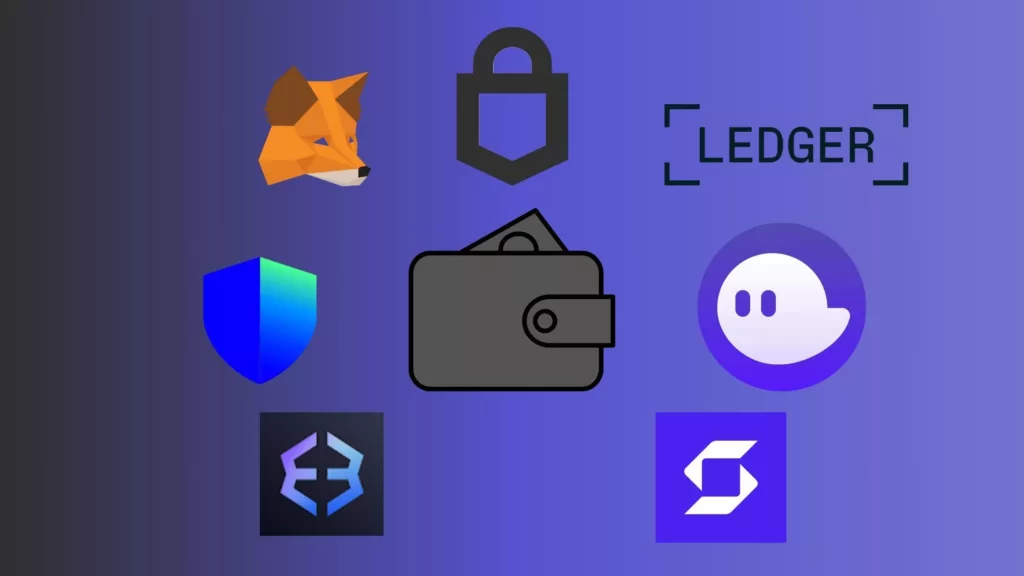
In cryptocurrencies, the management of digital assets plays a crucial role. Central to this management are cryptocurrency wallets. They are tools that store and manage your digital assets. They allow you to send, receive, and monitor your cryptocurrency holdings. Wallets are primarily of two primary types: custodial and non-custodial. The distinction between these two wallets boils down to the level of control and responsibility you hold over your assets.
A custodial wallet is a crypto wallet that stores, sends, and receives cryptocurrencies like Bitcoin, Ethereum, etc. The term “custodial” comes from the fact that the control of your crypto assets is held by a third party, similar to how a bank holds your money. This third party is often a cryptocurrency exchange or a dedicated wallet service.
Here is how it works:
The key perks of using custodial wallets are:
These wallets are user-friendly and require minimal interaction with the technical aspects of blockchain technology. You don’t need to worry about managing your private keys. This makes custodial wallets a preferred choice for newcomers.
If you face any challenges or inquiries, custodial wallet providers typically offer customer support, a notable benefit compared to non-custodial wallets, where assistance is limited.
Custodial wallets often come with backup services. If you forget your password or lose access to your wallet, the provider can help you recover your account. This reduces the risk of losing your cryptocurrencies, a common concern in the crypto world.
These wallets often offer seamless integration with dApps, expanding your opportunities in the crypto space. That means you can directly interact with various blockchain applications from your wallet.
Some custodial wallets allow you to participate in staking or yield farming. These methods involve earning rewards by locking up cryptocurrencies in DeFi protocols or blockchain networks. Yield farming uses liquidity pools, while staking supports network operations and security.
Custodial wallets provide strong security with features like encrypted private keys, multi-factor authentication, and cold storage. They also use multiple transaction signatures, including thorough security measures like manual transaction reviews.
ALSO READ: How to Choose the Right Crypto Wallet?
Some of the drawbacks of a custodial wallet are:
You don’t have complete control over your funds with a custodial wallet. The service provider has the ultimate power, and you must trust them to handle your assets responsibly. For example, if you use a wallet service like Coinbase, they control your private keys and can freeze your account if necessary.
Custodial wallets are easy targets for hackers because they hold many users’ private keys. If the service provider’s security is compromised, your funds could be at risk. For instance, in 2014, Mt. Gox, a Bitcoin exchange, was hacked, and 850,000 Bitcoins were stolen.
Using a custodial wallet often requires providing personal information to the service provider. This could lead to privacy concerns, as the provider could track your transactions or share your information. For example, some exchanges require a Know Your Customer (KYC) process, where you must provide personal information to use their services.
Since the wallet provider controls your funds, they must comply with local laws and regulations. If the government decides to seize assets or shut down the provider, your funds could be at risk. For example, in 2020, the U.S. government seized over $1 billion in Bitcoin from a wallet associated with the Silk Road, a dark web marketplace.
With a custodial wallet, you depend on the wallet provider for transactions. If the provider’s servers go down, you won’t be able to access your funds. For example, in 2020, major exchange Binance experienced an outage, leaving users unable to trade or access their funds for several hours.

Non-custodial wallets, also known as self-custody wallets, are digital wallets that allow individuals to store and manage their digital assets securely. Unlike custodial wallets, non-custodial wallets give the owner exclusive control of the private keys. Non-custodial wallets can interact with decentralized finance (DeFi) protocols and decentralized applications (dApps).
Here is how it works:
The key perks of using non-custodial wallets are:
A non-custodial wallet allows you to have direct control over your private keys. That means you are entirely in charge of your funds and don’t have to depend on a third-party exchange to handle your assets.
Non-custodial wallets ensure high security. Offline versions, known as ‘cold wallets,’ are protected from online hackers, so your cryptocurrencies remain secure even if your devices are compromised.
Transactions with non-custodial wallets are usually quicker. You can send and receive funds almost immediately without needing third-party approval.
Non-custodial wallet interoperability allows users to handle different cryptocurrencies through a unified platform. This feature helps asset management provide a unified interface for diverse digital currencies.
Non-custodial wallets reflect the decentralized philosophy of blockchain technology. By not depending on a central authority to safeguard your funds, they minimize the risk of central points of failure.
Some non-custodial wallets also serve as decentralized exchanges. This allows you to swap tokens directly within the wallet app, offering a smooth user experience.
Some of the drawbacks of a non-custodial wallet are:
In a non-custodial wallet, the duty to protect your cryptocurrencies falls entirely on you. You must ensure your keys are secured with strong passwords and proper backups. A case in point is a 2017 incident where a man in Germany lost the password to his wallet containing 7,002 Bitcoins. Even after several tries, he was unable to recover his funds.
Forgetting to backup keys or misplacing them can lead to permanent loss of funds. A real-life case is James Howells from Newport, who mistakenly threw away a hard drive containing 7,500 Bitcoins. Despite his efforts to find it, he could not retrieve the hard drive from the landfill, resulting in a permanent loss.
Dealing with security protocols can be challenging for newcomers. Cryptocurrencies operate on complex blockchain, which might be hard to understand for those new to the field. This complexity can result in errors.
In 2016, for example, a bug in the DAO (Decentralised Autonomous Organisation) project’s code allowed an attacker to transfer about 3.6 million Ether into a child DAO, showing how complex code can create security risks.
A major issue is the risk of losing a wallet due to lost seed phrases or private keys and the difficulty of transferring wallet ownership to loved ones.
A recent case is the sudden death of the QuadrigaCX exchange founder, who was the sole person with access to the exchange’s cold wallets. Following his death, his $190 million in cryptocurrency assets became inaccessible.
ALSO READ: Best Bitcoin Wallets in India 2024 | Reviews & Top Picks
Both custodial and non-custodial wallets offer distinct advantages and challenges. Custodial wallets provide ease of use, integrated services, and account recovery but come with the trade-offs of less control and potential security risks. Non-custodial wallets offer greater control, privacy, and security but require users to manage their private keys fully.
Ultimately, the choice between custodial and non-custodial wallets should align with your needs, security preferences, and experience level.
What are the components of a self-custody wallet?
A non-custodial wallet comprises two key elements: public and private keys. The public key functions as your crypto wallet address for receiving incoming cryptocurrencies, while the private key enables the transfer of cryptocurrencies from the wallet.
What are hardware wallets?
Hardware wallets are devices devised to securely store cryptocurrency private keys offline, protecting them from online threats like hacking. They enable users to safely manage and access their digital assets by generating and storing keys within the device, reducing the risk of unauthorized access compared to software wallets.
What are software wallets?
Software wallets are digital applications or programs that keep cryptocurrency private keys on a computer or mobile device. They provide easy access but are more vulnerable to hacking and malware than hardware wallets.
How to secure your crypto wallet?
Safeguard your crypto wallet by employing strong and unique passwords, and remember to enable two-factor authentication for added security. For hardware wallets, keep them in a safe place and keep your recovery phrase private. To protect your assets, regularly update your software and be cautious of phishing attempts or suspicious links.
What is a seed phrase?
Your crypto wallet generates a seed phrase, or recovery phrase, a series of words that lets you recover your wallet and its funds. Protecting this phrase and keeping it confidential is crucial, as anyone who possesses it can access your assets.